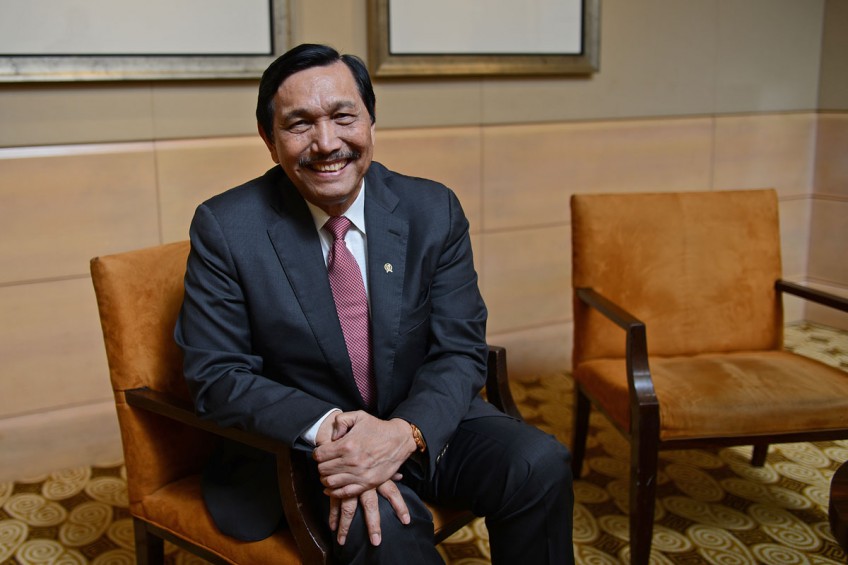Indonesia calls for S. China Sea talks

Indonesia hopes to see an end to the South China Sea disputes through peaceful dialogue instead of an aggressive projection of power in the region.
However, if that fails and Indonesia is drawn into the tussle, it will prefer to turn to international arbitration, Coordinating Minister for Political, Legal and Security Affairs Luhut Pandjaitan said yesterday.
"Being the biggest ASEAN country, we would like to see a solution on this in the near future (through) dialogue, or we could bring it to... an international tribunal court," he said.
"But the stand of Indonesia is very clear - we don't want to see power projection in this area, we like to see a peaceful resolution by promoting dialogue; dialogue is the best solution to solve this."
Although Indonesia is not a claimant in the territorial disputes, it has kept a close watch on developments. China has supported its territorial claims using a map with a nine-dash line that encloses most of the South China Sea. In recent months, it has reclaimed land in disputed territories and placed military facilities on them.
Mr Luhut said the "nine-dash line is a problem" that not only affects the four ASEAN claimant states of Malaysia, Brunei, Vietnam and the Philippines but also Indonesia.
The minister was referring to the claims by China, Taiwan and the four ASEAN states in his speech at a Jakarta Foreign Correspondents Club gathering yesterday.
Another regional issue he addressed was the transboundary haze crisis in the past months, which saw air pollution hit record levels, affecting millions across South-east Asia.
Conditions this year are statistically the worst for the decades-old haze problem, surpassing the 1997 and 2013 crises. There have been 19 haze-related deaths so far, and more than half a million people have been treated for acute lung infections in Indonesia alone.
The fires have razed some 2.1 million hectares of forests and peatlands, and released record levels of greenhouse gases.
"It is not going to happen like this any more," said Mr Luhut, adding that the current government has learned from this year's crisis and put in place measures to prevent a repeat of the problem.
Besides coming down hard on errant farmers and companies that use fire to clear land, President Joko Widodo has also banned the cultivation of peatlands, including those on concessions that have yet to be turned into plantations.
"We are not going to negotiate with the (concession) owners of peatland any more," he said, admitting that it was a "big mistake by us" to have issued licences for the cultivation of some 6.3 million hectares of peatland over the last decade.
"So this is not going to happen again, I promise you," said Mr Luhut. "We have learned from this and won't be taking any more risk next year... we will be prepared for the worst."

This article was first published on November 12, 2015.
Get a copy of The Straits Times or go to straitstimes.com for more stories.